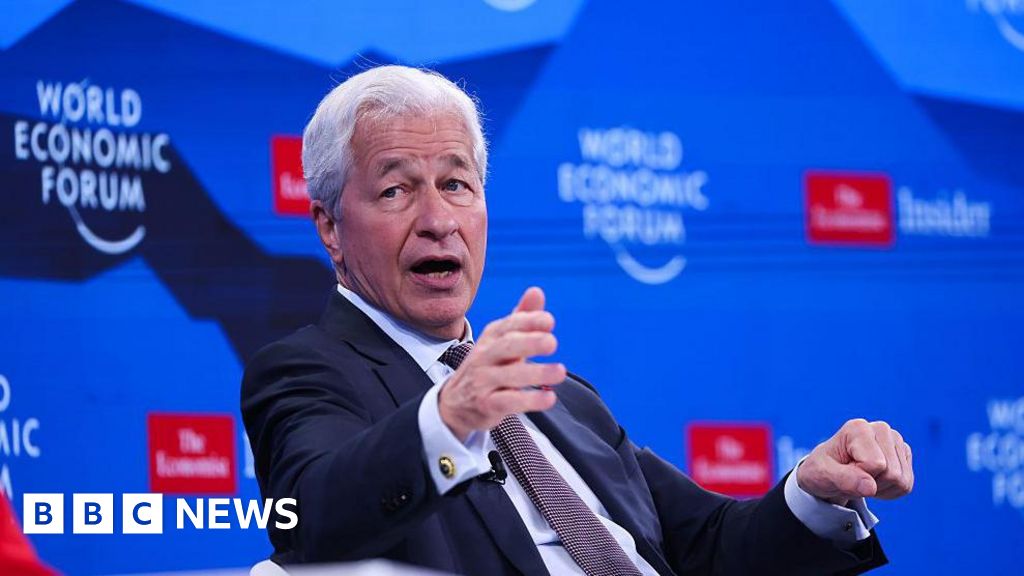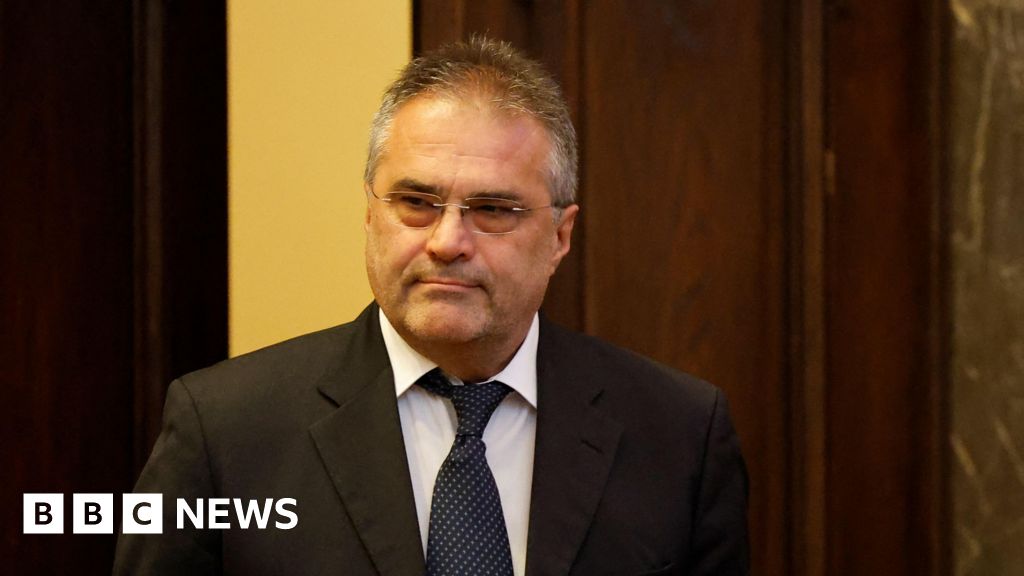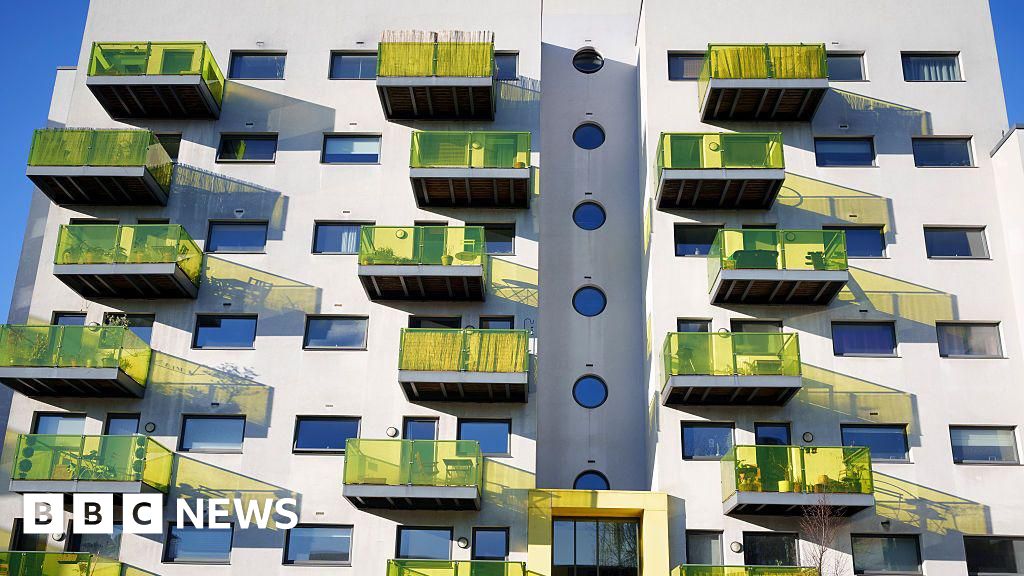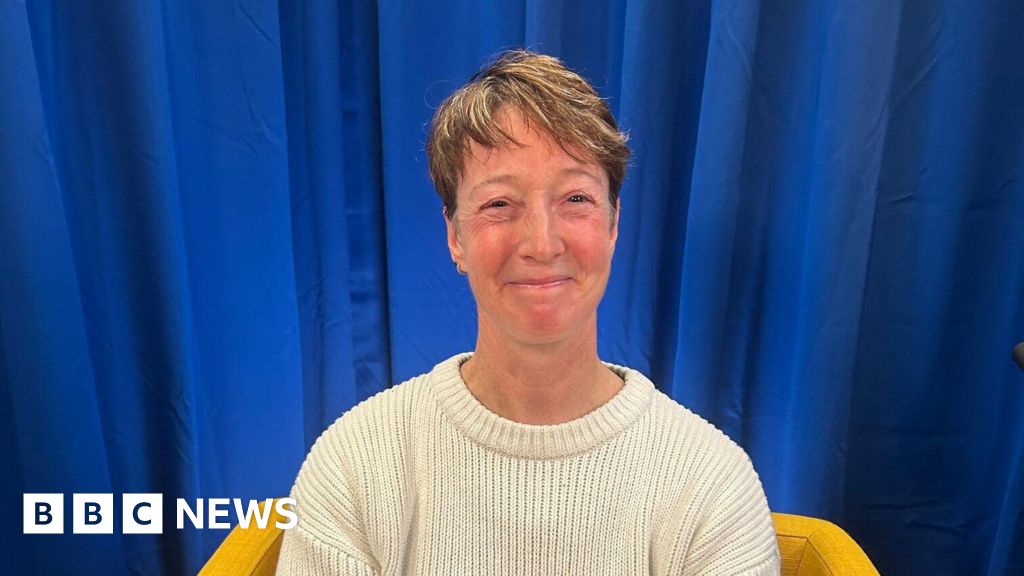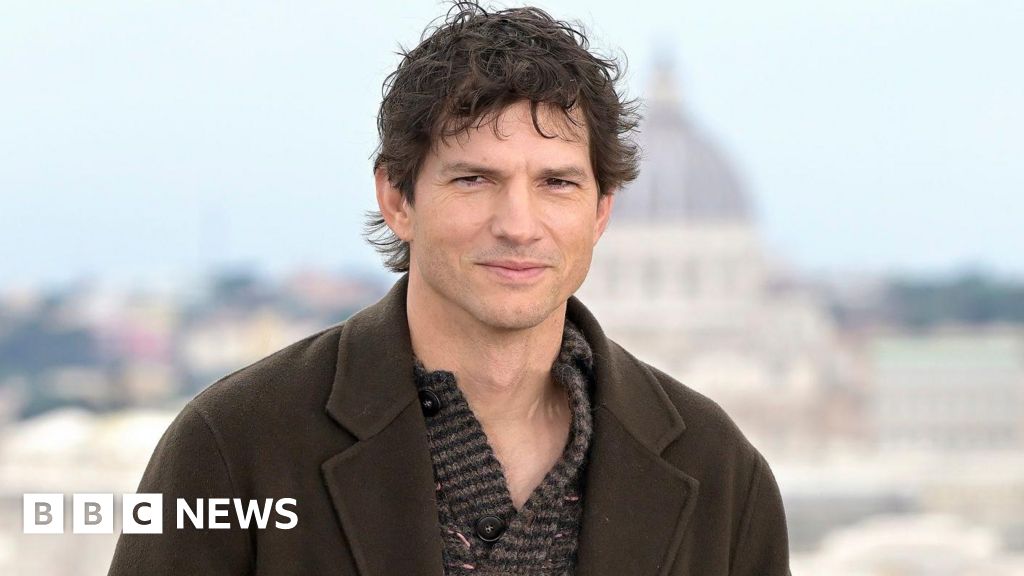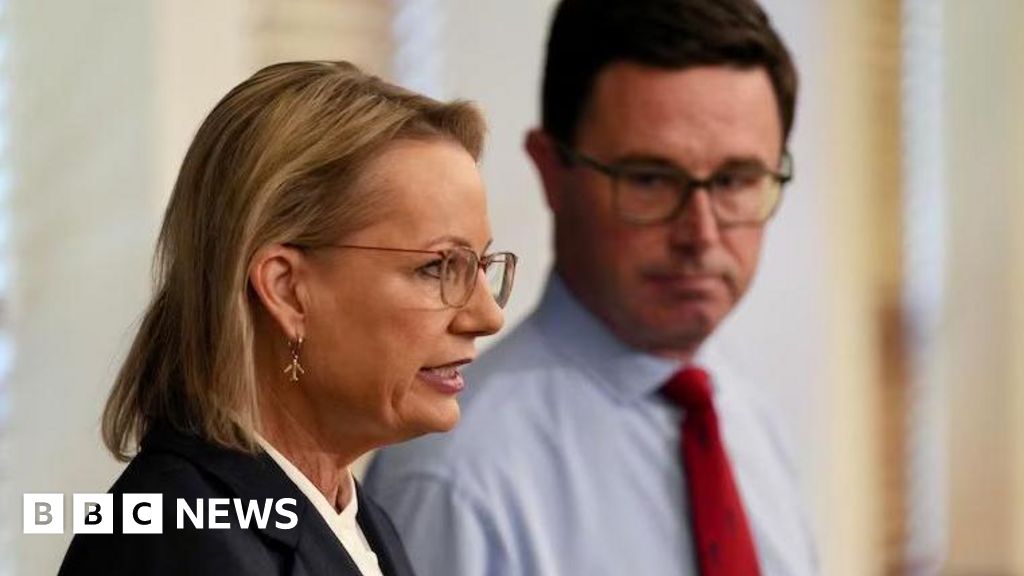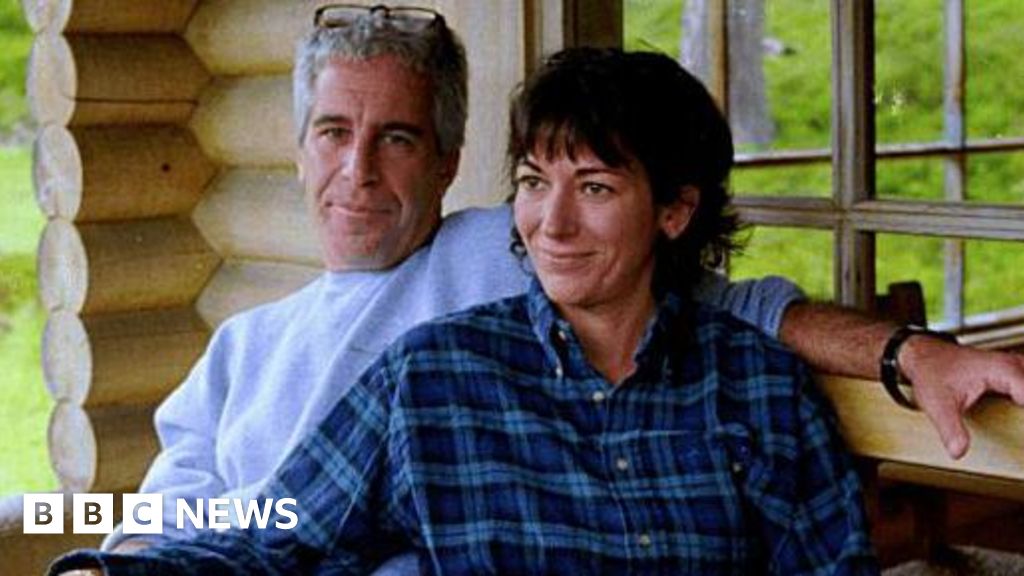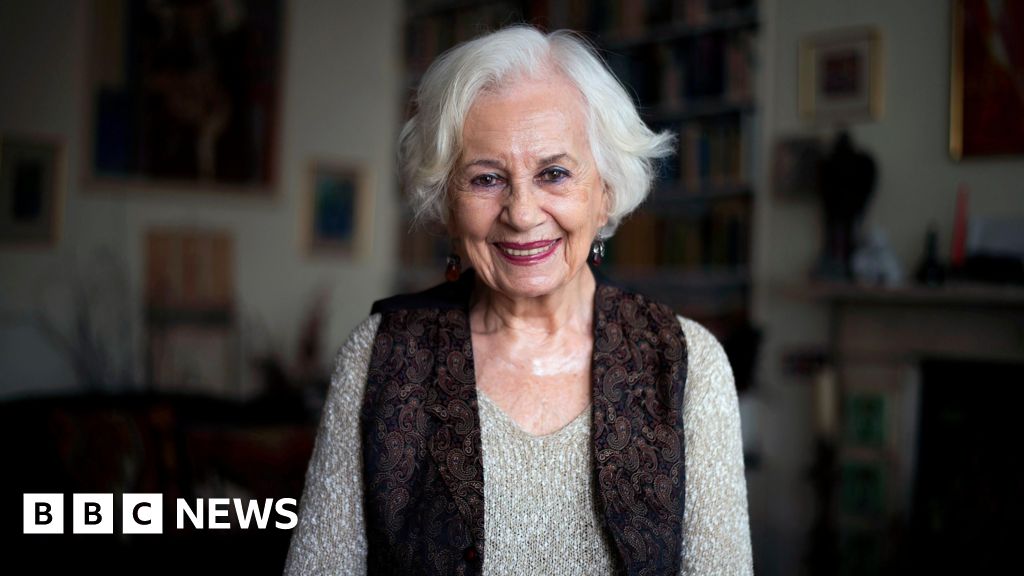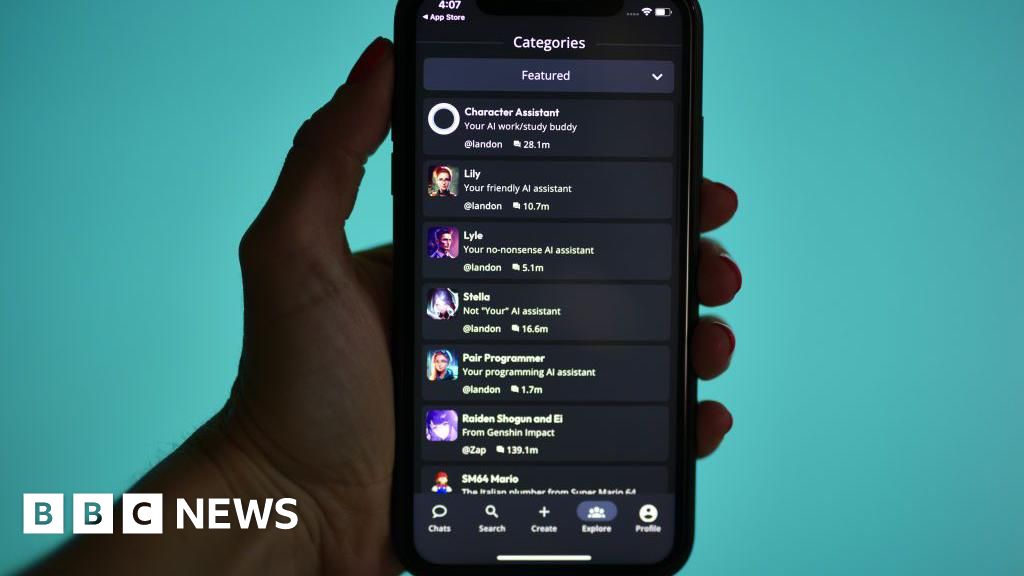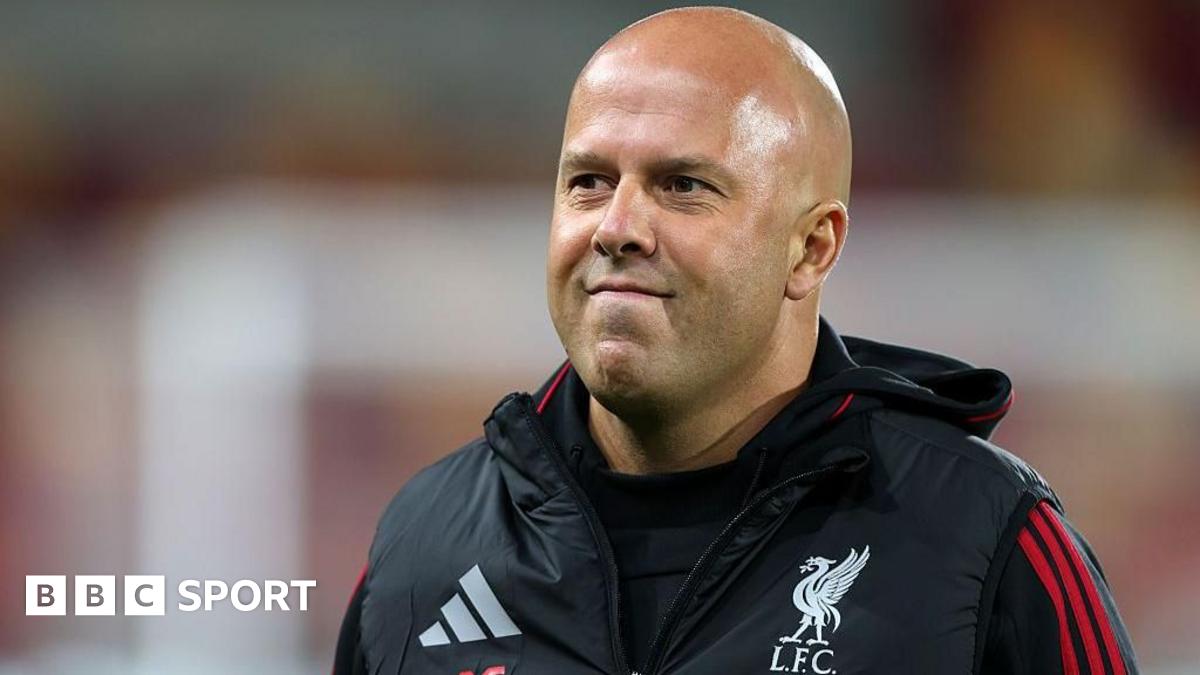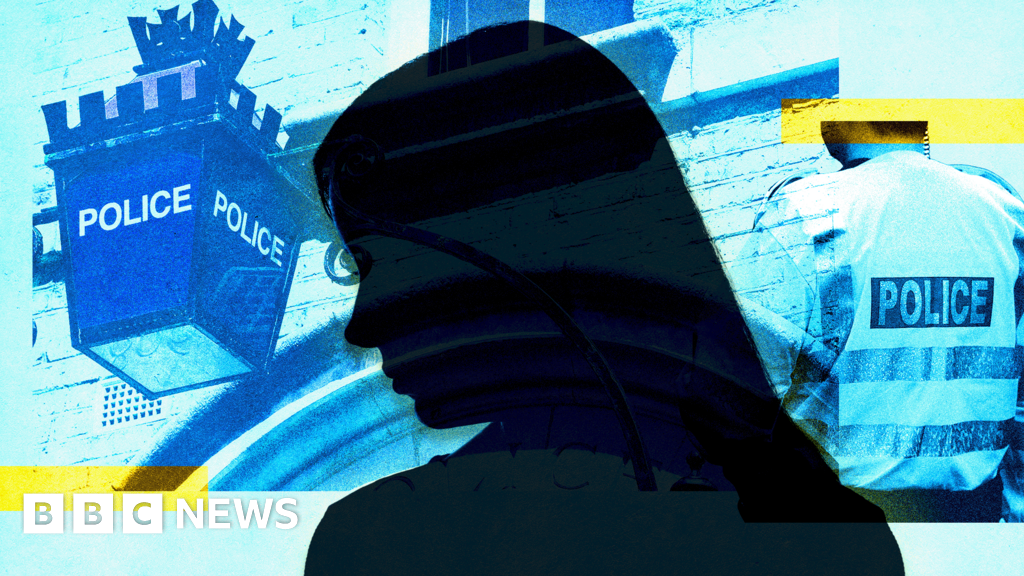
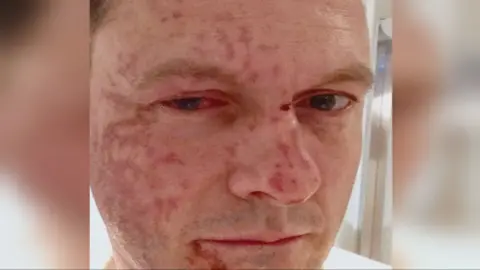 BBC
BBC
Russell Findlay, seen here shortly after the attack, had sulphuric acid thrown at his face but avoided permanent scarring
Scottish Conservative leader Russell Findlay has welcomed the news that the man who attacked him with acid 10 years ago has not been recommended for parole.
Findlay was working an investigative journalist for the Sun newspaper when William Burns, who was disguised as a postman, knocked on his door and threw corrosive liquid in his face.
Findlay was informed of the parole board's decision by email, hours after he spoke out about what he described as a lack of transparency in the system.
He told BBC Scotland News that crime victims across Scotland were being denied "basic information" and the process needed to be "dragged into the 21st Century".
In a media statement, Findlay said he was pleased Burns would remain in prison "for a few months longer".
"Burns has caused untold harm to many people during a depraved criminal career spanning decades. He has never shown any interest in rehabilitation," he said.
"I'm grateful for the board's decision, knowing how difficult their job can be. But Scotland's entire criminal justice system, including the parole process, needs radical overhaul.
"A starting point would be to start treating victims with respect and ending the entrenched culture of secrecy."
Earlier, Findlay recalled the incident in December 2015, when he opened the front door of his Glasgow home to Burns two days before Christmas.
He told BBC Radio's Good Morning Scotland programme: "He distracted me by getting me to sign a document.
"As I was looking down, he threw what turned out to be sulphuric acid into my face. I was extremely fortunate in that it only caught half my face."
Findlay was able to quickly wash away the acid with water, meaning he avoided any permanent scarring.
He added: "I was able with a bit of good luck to detain Burns until the police arrived to take him away.

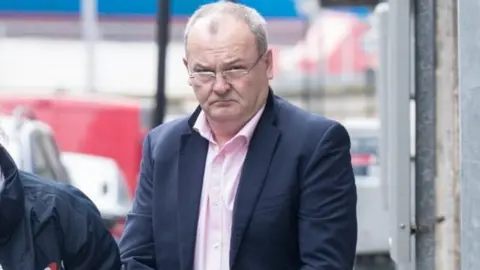
William Burns was jailed in 2017 for 15 years over the acid attack
Findlay, who became an MSP in 2021, often worked on stories about organised crime and "dangerous individuals" during his previous 30-year career in journalism.
He took precautions such as never allowing his photograph to appear on his stories.
At his trial Burns said he only intended to "beat up" Findlay who he claimed had told him he had a compromising photo showing him with a young blonde woman.
The jury rejected his suggestion that Findlay had thrown the acid at himself, and the judge jailed him for 15 years, with a minimum custody term of 10 years.
The attack took place months after Burns was freed early from a previous15-year jail term for shooting a woman during a post office robbery.
Burns was also accused of involvement in a gangland shooting in Bishopbriggs earlier in 2015, but was later acquitted after a judge ruled there was insufficient evidence.

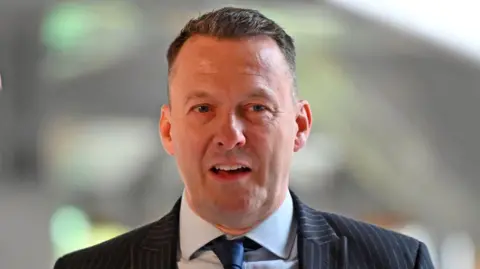 Getty Images
Getty Images
Findlay, who became an MSP in 2021, says the parole system needs "dragging into the 21st Century"
Findlay said he accepted Burns would be released from prison at some point but he was annoyed by the lack of transparency around a parole process which he said denied victims "the most basic information".
"All I get to know is whether a decision to grant to deny parole is made," he said.
"I'm not allowed to know where the hearing takes place, who sits on the board, I'm not allowed to know what evidence is led by him - so therefore cannot challenge it.
"I'm not allowed to know the reasons why a decision is reached and that's not just about me complaining about a lack of transparency.
"That applies to crime victims the length and breadth of Scotland."
Findlay said the early release of prisoners risked undermining public faith around sentencing and he pointed out that in other parts of the UK victims of crime are allowed to attend parole hearings.
"We just need to be dragged into the 21st Century," he said.
Justice Secretary Angela Constance said some changes to the parole system had already been made in the recently passed Victims, Witnesses, and Justice Reform Bill.
She said these included requiring parole boards to take into account the safety of victims and the possible use of exclusion zones.
Constance said she had also ordered a consultation on ways of improving the parole system which will include looking at transparency and communication.
She added: "The consultation is still ongoing. I would encourage any victim or their family to participate in that consultation.
"The consultation is to be informed by direct engagement with victims and families because the parole system, like all parts of the justice system, must take into account the trauma experienced by victims of a hideous crime."

 3 months ago
83
3 months ago
83



